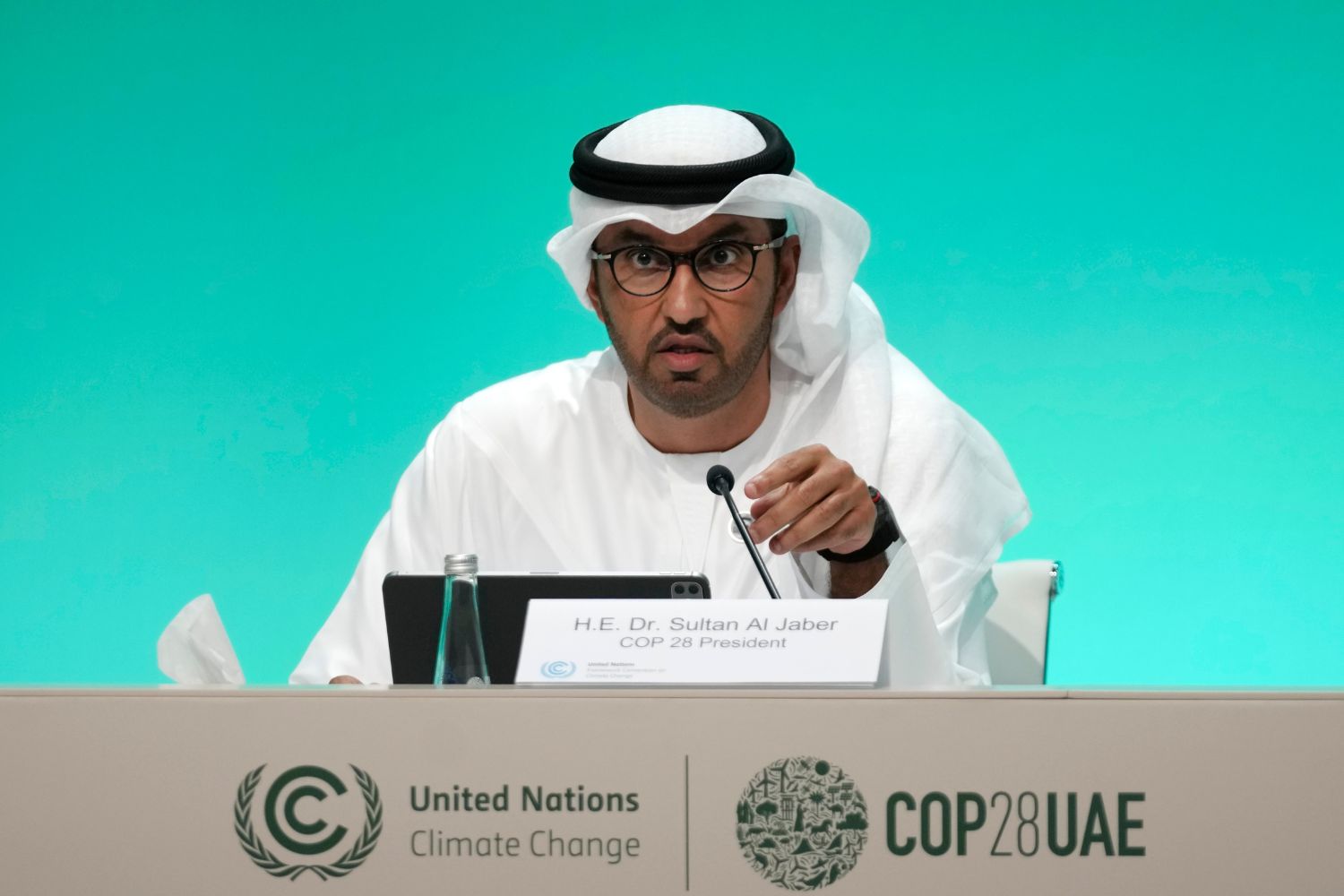The United Nations Environment Programme recently published a report with an unusually strong title for a UN body: “Emissions Gap Report 2023: Broken Record – Temperatures hit new highs, yet world fails to cut emissions (again)”. Yet again, it highlights how far countries are off track from safeguarding the planet – and us.
As the world gathers in the United Arab Emirates for the annual UN climate change conference (or, more formally, Conference of the Parties, COP), the stakes are as high as ever. The head of the UN climate change secretariat Simon Stiell has urged for this meeting – COP28 – to be a “turning point.”
Can this COP deliver on that goal? Perhaps.
As an academic focused on international climate governance, I’ve seen how trust is vital for an ambitious outcome. Delegates negotiate all night. They trade off issues against another. And at the end of the long summit, negotiators and ministers rely on each other to uphold bargains made over hundreds of hours of talks. But, though COP28 will be my 11th climate COP, I’ve never seen trust so low among countries.
ALSO READ: Fossil fuels in the crosshairs at pivotal COP28 talks
Here are the key issues at stake this time round:
1. Whether the host really matters
Does it matter that the host country is a major oil producer, and the COP president, Sultan Al Jaber is the head of the UAE’s national oil company? Yes and no. Optics-wise, it’s not great.
The UAE is host because the COPs follow a regional rotation. When the Asia-Pacific region was due to select its host country, during the pandemic, only the UAE ultimately stepped forward. There are legitimate worries and already evidence of a conflict of interest.
Yet a COP president is a constrained actor. It can facilitate and provide support, but cannot set the agenda or nullify any views put forward. Countries are quick to jump on someone seen to be overstepping their bounds, and not facilitating a “party-driven process.”
Informally, the COP president can set more or less ambitious goals for the meeting and help broker better deals for the planet. Ultimately though, it is up to countries to deliver.
ALSO WATCH: United Nations global stocktake reveals global warming commitments falling short
2. A fight over the agenda
COP28 president Al Jaber’s first test comes before the meeting starts. Countries must agree to the agenda – what issues they will negotiate and (maybe) decide on. This year, there are 16 suggested additions. A record in my experience, and most will surely prove provocative.
A coalition called the Like-Minded Group of Developing Countries (LMDC) has brought forward several suggestions. The group, which includes China, India, Saudi Arabia and Bolivia among others, has proposed negotiations on doubling adaptation finance, as agreed in Glasgow in 2021, and urgently scaling up financial support from developed countries.
It was only last year that developed countries finally met their 2010 promise to provide US$100 billion per year by 2020. This is one reason why trust between countries is low.
The last LMDC suggestion may be the most controversial. When the UN framework convention on climate change was adopted in 1992, the world was clearer: there were developed and developing countries that were easily distinguished. The LMDCs and others want to protect this split and point to the historic responsibility of wealthier western countries. In their view, rich countries should be providing more climate finance.
The US and other developed countries want more of a spectrum, where countries act in light of their own national circumstances and capacities. They point to the emissions of countries like China and India and call for commensurate action, even in providing finance to other countries.
We won’t know how all this agenda fight works out until the meeting starts. If countries do not solve it by the opening day, then there could be a lengthy delay.
ALSO WATCH: Global oil markets on edge as Middle East crisis raises concerns
3. The global stocktake
This is an important year for the Paris agreement, signed in 2015, as it’s the first ever global stocktake. This is a look at how countries are doing on reducing emissions, building climate resilience, and supporting developing countries. It will likely deliver a sobering inventory of countries’ collective efforts.
Following a year-and-a-half long technical phase to gather inputs, the stocktake is now in the political phase where countries must decide what to say about the findings. The field is open. This exercise hasn’t happened before so there isn’t a blueprint to follow. Countries could identify priority areas for action, or set goals, such as doubling renewable energy capacity.
The findings and the political outcome must inform the next round of countries’ pledges to cut emissions, due in 2025. It is a key part of how the Paris agreement tries to “ratchet up” climate ambition, though how this stocktake will raise ambition is also still up for debate. They have just two weeks to negotiate and the current, bullet-point-only draft shows that parties are very far apart.
4. Phasing down (or out) fossil fuels
It was a new idea to specifically mention coal and fossil fuel subsidies in the 2021 Glasgow climate pact. While reducing emissions is a key part of climate discussions, the focus is often on measures like avoiding deforestation or trading permissions to emit carbon rather than simply not emitting it in the first place.
In the run up to COP28, there have been calls by countries to either phase out or phase down fossil fuels, or maybe to specify “unabated” fossil fuels (where unabated could mean many things). This language would be groundbreaking. But, it’s important to remember that many of its proponents are still actively investing in fossil fuels.
No one COP will save the planet. But this one could help ratchet up climate action in the immediate future. With much left in the air and trust among countries low, COP28 may struggle to meet even the expectation to act as a turning point.
Don’t have time to read about climate change as much as you’d like?
Get a weekly roundup in your inbox instead. Every Wednesday, The Conversation’s environment editor writes Imagine, a short email that goes a little deeper into just one climate issue. Join the 20,000+ readers who’ve subscribed so far.
Jen Allan, Lecturer in Environmental Politics, Cardiff University
*This article is republished from The Conversation under a Creative Commons license. Read the original article.













